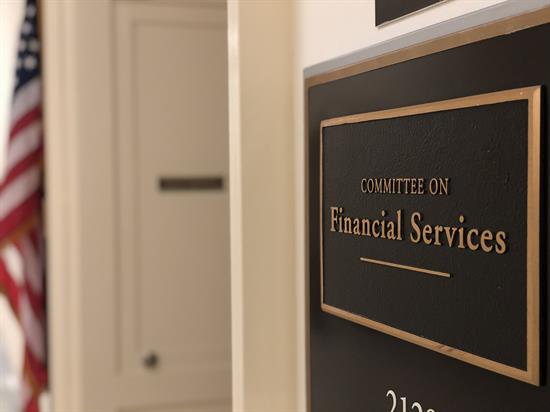Financial Institutions Subcommittee Examines Proposed Cannabis Banking Legislation
Washington,
February 13, 2019
WASHINGTON – Today, the Subcommittee on Consumer Protection and Financial Institutions held its first hearing of the 116th Congress entitled Challenges and Solutions: Access to Banking Services for Cannabis-Related Businesses to consider the Secure and Fair Enforcement (SAFE) Banking Act of 2019. The Ranking Member of the Subcommittee, Blaine Luetkemeyer (MO-03) delivered opening remarks outlining the complexities of allowing a “federally illegal business to access banking services” and how, if the SAFE Banking Act were signed into law, would it be possible for banks to “separate legal growers from bad actors attempting to access financial services.” Watch Ranking Member Luetkemeyer’s opening statement here or by clicking on the image below. Subcommittee on Consumer Protection and Financial Institutions Ranking Member Luetkemeyer: “Today, we’re discussing an issue that, we can all agree, must be addressed. As changing state laws spur the formation of thousands of cannabis-related businesses across the country, I’ve heard from many banks and credit unions who are facing the decision of whether they can or cannot get involved with these businesses…The bottom line is the law, not personal preferences, must dictate the accessibility of financial services, and as long as marijuana is illegal at the federal level attempts by this committee to legalize the banking of it will create more confusion than clarity.” The House Financial Services Committee Ranking Member, Patrick McHenry (NC-10) questioned witnesses Rachel Pross, testifying on behalf of the Credit Union National Association (CUNA) and Gregory Deckard, testifying on behalf of the Independent Community Bankers of America (ICBA), on the reputational, regulatory, and compliance risks faced by financial institutions involved in the banking of the cannabis industry. However, Ranking Member McHenry pointed out that the SAFE Banking Act would not actually resolve the very risks it was designed to address, ultimately creating even more uncertainty for the financial institutions. Watch Ranking Member McHenry’s questioning here or by clicking on the image below. Ranking Member McHenry: “So there’s a lot to be resolved. A lot of questions, including the reputational risk question, which in most communities it would come down to a different understanding, just based off of where they are. The 33 states, the difficulties of each individual states’ version of regulation. Much less, the 17 states that have no form of this. Do you see this as a major challenge for us legislating in this area? I think so.” |




